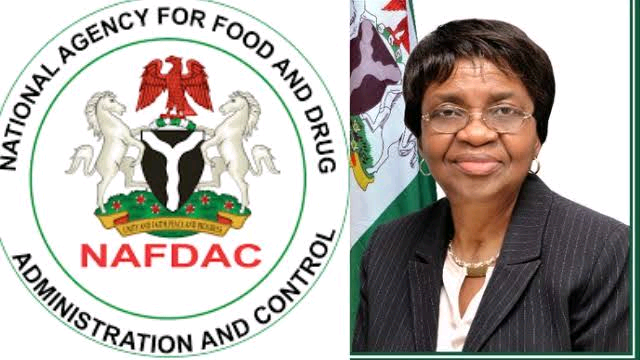NAFDAC trains 800 journalists on dangers of bleaching cream
The National Agency for Food and Drug Administration and Control (NAFDAC) says it has trained about 800 journalists on dangers of bleaching cream to enable them effectively enlighten the public.
The agency’s Director of Public Affairs, Mr Abubakar Jimoh, made this known on Wednesday in Maiduguri at the launch of the North-East Zonal Media Sensitisation Workshop on Dangers of Bleaching Creams.
Jimoh said the journalists where selected from various states across the six geo-political zones, adding that
“bleaching has become a hard-headed monster and something needs to be done to enlighten the public about its effects through the media.”

In her address presented at the occasion, the Director-General of NAFDAC, Prof. Mojisola Adeyeye, said NAFDAC was prompted into action on the negative impact of bleaching cream following a directive to that effect by the
Secretary to the Government of the Federation when he received Senate resolutions on the problem.
Adeyeye, who was represented by NAFDAC’s Director of Chemical Evaluation and Researc, Dr Leonard Omokpariola,said
“the essence of the workshop is to educate health journalists to play frontline role in eradicating the menace of bleaching creams.
“This sensitisation workshop is a train the trainers’ programme with the great expectation that participants will assume the role of champions in the vanguard of the campaign against bleaching creams..
Read Also: Re: NCC Incurs Deficit in 2021 Budget
“Even though I have assigned some of my competent officers to carry out this training, it is imperative for me to warn that some of the harmful effects of bleaching creams include cancer, damage to vital organs of the body, skin irritation and allergy, skin burn and rashes, wrinkles, premature skin ageing and prolong healing of wounds.”
A World Health Organization (WHO, 2018) study revealed that the use of skin bleaching creams was prevalent among 77 percent of Nigerian women, the highest in Africa compared to 59 per cent in Togo, 35 per cent in south Africa and 27 per cent in Senegal,” Adeyeye said.
She added that “the scary statistic has shown that the menace of bleaching creams in Nigeria has become a national health emergency that requires a multi-faced regulatory approach.”
She identified consultative/sensitisation meetings and raids on distribution outlets of bleaching creams as part of the measures to check the menace.
The Chairman of Nigeria Union of Journalists (NUJ) in Borno, Mr Dauda Iliya and his Yobe counterpart, Mr Rajab Mohammed, who spoke on behalf of participating journalists, lauded NAFDAC for the training opportunity.
They reiterated the commitment of journalists in North East to support the agency through sustained news reportage on dangers of bleaching.
